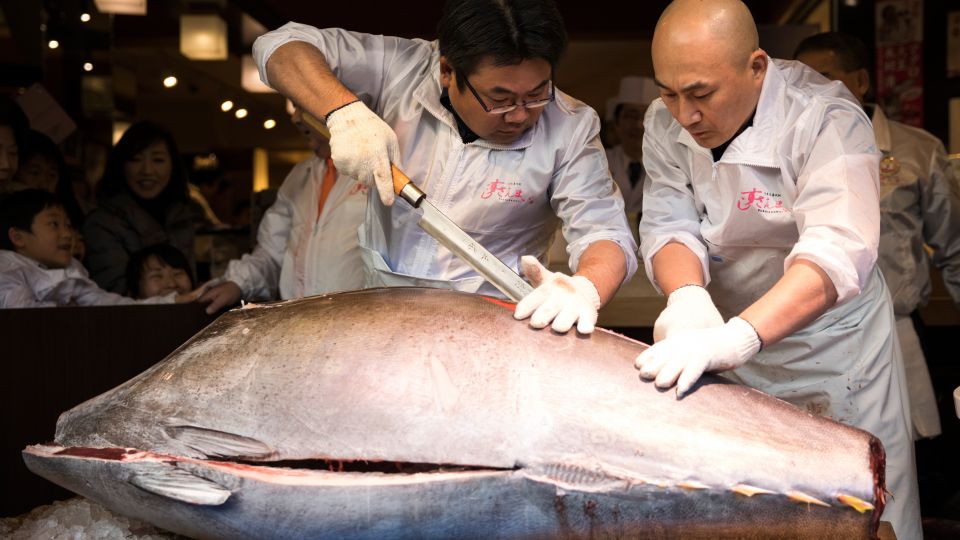July 17, 2019
The government will pay fishermen to dispose and collect ocean plastic.
The government plans to provide assistance for the collection and disposing of plastic waste in the ocean (see below) picked up by fishing vessels, according to sources.
It intends to subsidize most of the cost borne by municipalities in disposing of plastic garbage that is dragged up along with fish in trawl nets, among other methods.
Amid growing international concern over how to deal with ocean pollution, the government hopes to work with fishermen to accelerate a reduction in plastic waste.
According to the Fisheries Agency, fishermen drag up large amounts of plastic bottles, bags and other kinds of waste along with the fish they catch when using trawl nets and other methods. They have to pay to dispose of the collected waste if they bring it back to land, so the fishermen often throw it back into the sea.
The agency and the Environment Ministry plan to make subsidies for disposing of waste that washes ashore also available for the waste that fishing vessels collect. The government notified each prefecture of the plan in June.
The Japan Fisheries Cooperatives and other relevant groups have reportedly expressed willingness to cooperate.
Funding for the subsidies will come from the ministry’s budget for a program to promote local measures for addressing marine waste. The program’s fiscal 2019 budget is about ¥3.5 billion — an about 13 percent rise from the previous fiscal year — taking into account the plan for ocean plastic.
Municipalities that dispose of the garbage are expected to shoulder about 6 percent of the cost, in principle, meaning the central government would bear most of the burden.
The Kagawa prefectural government and all the 17 municipalities in the prefecture cover the cost of collecting and disposing of waste picked up by fishermen in their own budgets. About 20 tons of such waste is disposed of annually, 80 percent of which is reportedly plastic waste such as bottles and shopping bags.
Currently, about 30,000 tons of ocean waste is disposed of per year nationwide. This figure only includes the waste that washes ashore, one-third of which is said to be plastic waste.
However, little progress has been made in dealing with other forms of ocean waste, such as garbage that sinks to the seafloor. The government hopes that if steady progress is made in the disposal of waste dragged up in trawl nets, it will lead to reducing the amount of deep-sea garbage.
One estimate indicates that from 4.78 million to 12.75 million tons of plastic waste, such as plastic bags and bottles, washes into the seas across the world annually, with 20,000 to 60,000 tons coming from Japan. At the summit meeting of Group of 20 major economies held in Osaka in June, leaders came up with the “Osaka Blue Ocean Vision,” which aims to cut the amount of further plastic pollution in the oceans to zero by 2050.
Ocean plastic waste
One estimate indicates that from 4.78 million to 12.75 million tons of plastic waste, such as plastic bags and bottles, washes into the seas across the world annually, with 20,000 to 60,000 tons coming from Japan. At the summit meeting of Group of 20 economies held in Osaka in June, leaders came up with the “Osaka Blue Ocean Vision,” which aims to cut the amount of further plastic pollution in the oceans to zero by 2050.Speech


